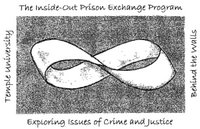 i’m in washington today, enjoying an ncovr workshop on desistance from crime. after writing a dissertation on the topic in the nineties, it is nice to catch up.
i’m in washington today, enjoying an ncovr workshop on desistance from crime. after writing a dissertation on the topic in the nineties, it is nice to catch up.
i’m learning much, but one presentation was particularly intriguing for someone studying collateral sanctions such as voting and occupational restrictions. shawn bushway, megan kurlychek, and bobby brame ask the following question: when does a criminal’s risk of a new offense decline to the point that it is indistinguishable from those with no record of past offending.
cool question, right? the authors apply event history analysis and life table demography to birth cohort data from philadelphia and racine, plotting the hazard rate of new offenses for young arrestees versus non-arrestees. at the risk of oversimplifying, the basic story is that the rate of a new arrest is approximately equivalent for the offender and non-offender groups after about 7 years. if such findings can be replicated across space and time, it could provide evidence against imposing lifetime bans on former criminal offenders. i believe that papers are forthcoming in criminology & public policy, crime & delinquency, and ampersand & ampersand.
i’ve got to prep my own talk, so i can only offer a few other notes on the workshop. first, i learned about reference groups and relative deprivation today. on my way to the exercise room, floridian alex piquero took note of my blindingly white legs. in minnesota, of course, i’m considered quite bronzed.
second, the best probably-shouldn’ t-blog-about-this stories came from shadd maruna tonight. here’s one i can share: aside from my committee and maybe a few select family members, shadd was virtually the only person interested in my early desistance writings. i’ll never forget him writing to me (on actual letters, involving stationery and stamps) back when he was doing diss work as a grad student and i was struggling mightily as an assistant professor.
when shadd’s letters arrived — likely with a fresh batch of journal rejections — his interest was greatly appreciated but a little problematic. at a time when i felt hopelessly and irredeemably lost, along comes a smart dissertator to ask for directions. i wanted to scrawl “go back! go back to etiology!” after reading making good, of course, i’m glad i didn’t. somehow we’ve both managed to publish our work and, after at least seven years, we’ve yet to desist from desistance.





